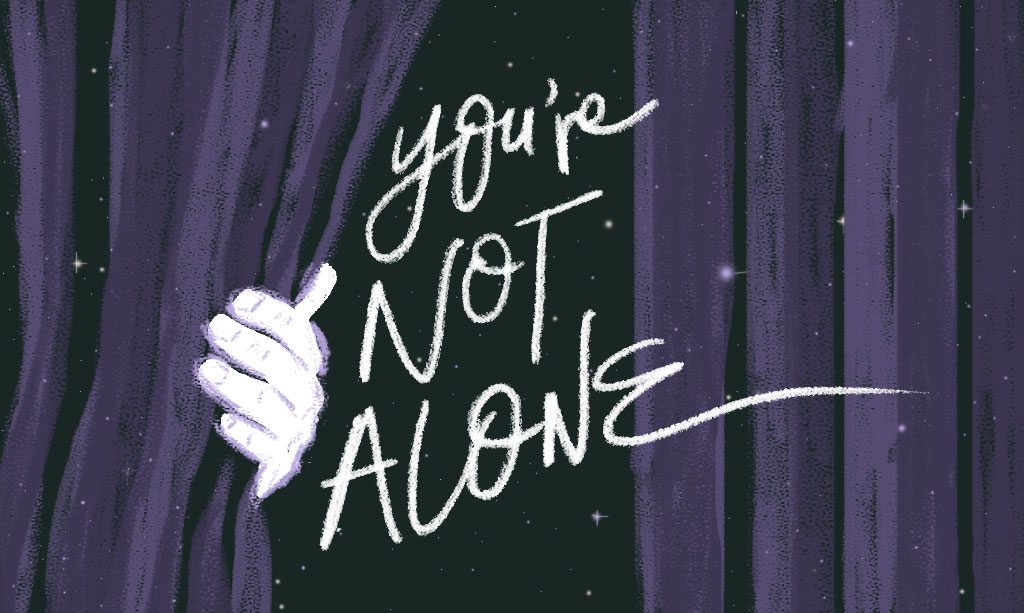Dear Joshua and Marty: You’re Not Alone
Dear Joshua and Marty,
I read your announcements within weeks of each other and can only imagine the circumstances that led you both to write your posts. I know enough to recognize that what you’ve told the public will only be a fraction of an intense and complex story. No one walks away from everything they’ve known on a whim.
This letter comes from no place resembling a high horse. I only wanted to reach out to say that I identify with this turning point in your lives. I certainly wasn’t well-known like either of you, but did have some degree of standing in my local church. More importantly, I felt like I’d really gotten it, what it meant to have a relationship with God. But life happened, and one day I was just done believing in Him.
I was very frustrated with a lot of the Christian responses I got. Some expressed their incredulousness that “someone like you” could be in “a place like that” (I’m still not quite sure how that was meant to spur me back to the faith). Others did try to be present. But in their urgency to fix me, they tended to listen only to point out all the logical inconsistencies in what I was saying. Mind, I didn’t have to make any public announcements about leaving the faith, so I was spared the hateful reactions I’ve seen whizzing about online (I’m so very sorry you’ve had to be subjected to that).
The trouble was that these responses weren’t saying anything I hadn’t already used in an attempt to beat myself back “on track”. But being told what I should be thinking or doing just wasn’t enough to get me there. Did you feel this too? The anguish of knowing what the “right things” to think and feel are, but realizing, more and more acutely as the days go on, that you’re just not there. I felt it coming for a few years myself, without a clue about how to bridge the increasing chasm between where I was and where I should be.
“Come home!” everyone was crying. “You know where it is!” Well yes, that’d be nice. But without first trying to find out exactly where I was, how could anyone give me useful directions to get me back to the right spot?
Perhaps that was what I needed, once I was ready to deal with the pain of where I was. To have someone recognize that I was in pain, and then be patient enough to identify the terrain of that pain with me. What was I feeling and why? What was the deep cry and need in my heart that my version of the Christian life wasn’t meeting? Was there a truth that I was somehow missing, even after all these years of being a believer?
Perhaps not many of us are taught how to speak to pain. So we often panic and are at a loss for what to say when we see it. Then we grasp for the words that we do have: platitudes, solutions, truth-telling (oh, we’re so good at that).
But the language of the mind is not the language that speaks to a broken heart. It is not what makes another person’s pain feel seen.Not that I was ready to figure this out immediately, of course. And in all likelihood, neither of you will be too. But perhaps a response that creates space for doubt is part of the language that speaks to pain.
Maybe if someone had been able to show me how to struggle well and ask wiser questions when the pieces of my faith were starting not to fit, I wouldn’t have bolted in the other direction to find comfort elsewhere. Maybe I would have stayed a little longer to figure it out.
Because maybe the “God” that we were wanting to leave wasn’t really God at all. Just someone who looked and sounded a lot like Him. I didn’t believe the wrong things about God; He had all the fundamental tenets of all the right Christian creeds. It was just that what I knew about Him was incomplete. I’d missed a critical detail, one critical beam that would keep my framework from collapsing in a storm (Matthew 7:24–27): I didn’t believe that God knew me better than I knew myself (Psalm 139:1–4) . That made it impossible to trust Him when times got really tough, because I couldn’t be certain that He knew what I really needed.
Our missing pieces are probably different, but their consequences are similar. Being one degree off at the starting point doesn’t really look like much. But if we keep walking on along that bearing for long enough, we eventually end up terribly off course. We find ourselves on an arduous path, carrying an enormous burden, without going anywhere life-giving. It is hell trying to bear the high, high cost of Christian discipleship for a “God” who isn’t really God, even if he does have the name “Jesus” slapped on him.
It was utterly freeing at first to leave the faith. Finally, I could build a life with frameworks that resonated with what I felt. For three years, it really did seem like I’d found a better place to set up home. But somewhere along the way, the same sensitivity in my gut that told me my earlier version of Christianity wasn’t working told me again that something wasn’t quite right with all the new frameworks I’d found either.
And it was painful all over again. But this time, someone was there to really listen to me. Based on what I said, she was able to help me see the piece that I missed about God. The piece that would make things fit, give me hope, and—finally—peace. I wish she could have been there the first time. But maybe I needed to come to the end of myself first, to really be able to ask for help.
Joshua and Marty, more than anything, I hope that you’ll have people who can create a safe space for you in this turning point of your life. I hope they’ll sit with you for as long as it takes to grieve what you have lost and bear witness to your pain. And I hope they’ll have words that offer both compassion and clarity, so that you’ll be able to step out of your pain and into something more life-giving one day. I’m rooting for you.
Sincerely,
Nelle










Thank you so much.
Powerful message… And a message of hope. This is nailing on the head what today’s society is missing… Someone to listen to their pain instead of bringing logical arguments against them. Listening to many opponents to Christianity, they all have the same thing in common – an intense disagreement or dislike of who they perceive God to be. And it’s exactly how you’ve put it – the view or perception of God that they have is incomplete.
Hey Nelle, is there any way I could connect with you? I would be so grateful if you could send me your e-mail address.
Thank you!